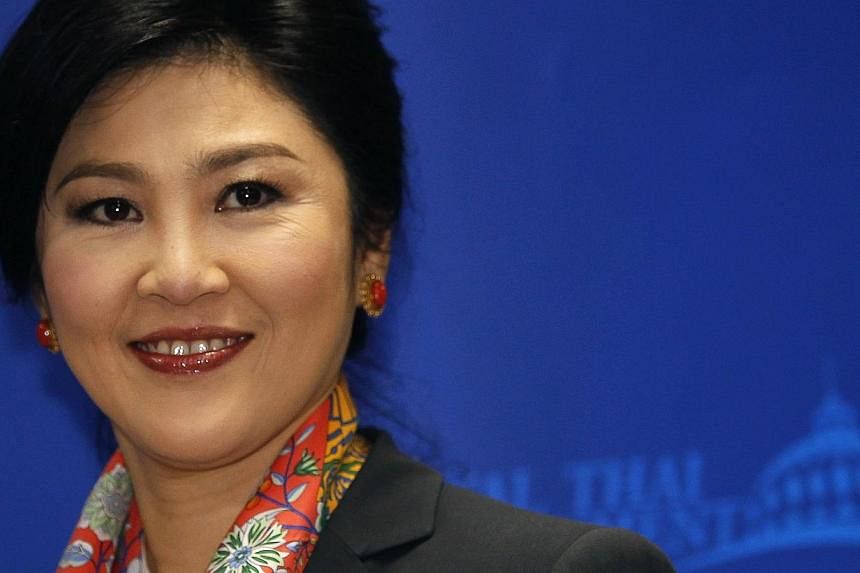BANGKOK (AFP) - Thailand's junta has given permission to ousted former prime minister Yingluck Shinawatra to leave the country for the first time since a May 22 coup, a military spokesman said on Thursday.
Yingluck is expected to travel to Paris next week to attend the 65th birthday party of her elder brother, the fugitive former premier Thaksin Shinawatra.
Her request was approved because she has stayed out of politics since the military seized power, according to the junta, formally known as the National Council for Peace and Order (NCPO).
"The NCPO yesterday approved prime minister Yingluck's request to leave the country because since the coup she has never shown that she was against the NCPO's work," army spokesman Colonel Winthai Suvaree said.
"She has kept a low profile ever since," he added.
Yingluck, Thailand's first female premier, was removed from office in a controversial court ruling shortly before the army toppled the remnants of her elected government.
She was among hundreds of people summoned and temporarily detained by the junta afterwards.
Her brother Thaksin was ousted in an earlier coup in 2006 and later fled Thailand to avoid prison for a corruption conviction that he insists was politically motivated.
The billionaire tycoon turned populist politician, who clashed with the royalist establishment before his overthrow, lives in Dubai but remains a hugely divisive figure in his homeland.
An attempt by his political allies to push through a political amnesty that could have led to his return sparked months of opposition street protests leading up to the May coup.
A military source said Yingluck must inform the Thai authorities of her whereabouts through overseas embassies while travelling.
Army chief General Prayut Chan-O-Cha seized power after nearly seven months of political street rallies and related violence that left 28 people dead and paralysed Yingluck's government.
The junta has ruled out holding new elections before around October 2015, despite appeals from the United States and the European Union for a return to democracy.

